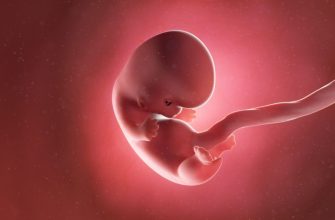Any new mother will be the first to tell you that pregnancy is demanding. The joys of having a baby are combined with the emotional strain, mental confusion, and physical exhaustion of carrying and providing for that growing child. These difficulties take their toll, and there’s no escape for the duration of the pregnancy. There are, however, some steps that an expectant mother can take to help offset the issues. One of the most important is the use of prenatal vitamins. There are many varieties of prenatal vitamins, each with their own special combination of ingredients. These components, listed along with their benefits, are found in most.
Folic Acid To Develop Baby’s Nervous System
Probably the most widely recognized component of a prenatal vitamin is folic acid. Folic acid is a derivative of the B vitamin called folate, which helps in the development of red blood cells. Folic acid is especially important during the development of the baby’s nervous system, spinal cord, brain, and internal organs.
DHA To Build Baby, Reduce Depression.
Docosahexaenoic acid, or DHA, is an important fatty acid component included in some prenatal vitamins. DHA affects both the development of the baby before birth and the well-being of the mother during and after the pregnancy. In the baby, DHA helps develop the brain and vision during the pregnancy and continues to assist the child through the mother’s breast milk if nursed. In the mother, sufficient levels of DHA after the birth can help reduce postpartum depression.
Iron For Powerful Blood
High-Level ingestion of iron from prenatal vitamins helps increase the production of red blood cells and improve the mother’s immune system. Since the blood requirements during pregnancy are increased, iron allows the mother’s body to respond and create additional cells as needed. In the baby, the increased levels of iron assist in the development of the heart and the overall growth of the embryo, creating a strong heartbeat and smooth blood flow.
Calcium For Strong Bones and Muscles
Calcium is the foundation requirement for building bones, teeth, and muscles in your developing baby. Strong muscle growth also adds to stable, healthy heart rhythm and blood flow. Along with the daily intake of calcium-rich foods such as milk and cheese, prenatal vitamins with calcium can help assure that your baby receives the building blocks it needs.
Vitamin C For Joints, Immunity Boost
Another common component of prenatal vitamins, important during every developmental stage of your baby, is vitamin C. This vitamin helps build collagen, which is necessary for the creation of bones, cartilage, and tendons. Vitamin C is also an important antioxidant and helps boost the immune system in both mother and baby.
Vitamin D For Bone Development
Another essential for strong bone, cartilage, and tooth development is vitamin D. Since vitamin D is normally acquired from exposure to sunlight, many expectant mothers lack this essential due to their tendency to spend less time outdoors. Most prenatal vitamins include at least a minimum supplemental level of vitamin D.
Vitamin B6 To Build Nervous System
Another strong essential for the development of the baby’s brain and nervous system, especially neurotransmitters, is vitamin B6, or pyridoxine. It is often recommended that women who are attempting to become pregnant start taking prenatal vitamins before conception to assure the presence of these vitamins early in the stages of the baby’s development. Vitamin B6 is also considered helpful for the mother to reduce nausea or ‘morning sickness’ during pregnancy.
Zinc For Cell Growth
One of the overall demands of pregnancy is non-stop cell development, both in the mother and the baby. Zinc is a crucial component of the development cycle, required for the growth of cells, new tissue, and DNA. Zinc also benefits the immune system by creating antibodies, which help protect against infections and bring healing to wounds.
Potassium For Electrolytes And Energy
Potassium is a mineral that serves the body in many ways. It helps maintain electrolytes and fluids, assists in extracting energy from proteins and carbohydrates, and even maintain healthy blood pressure levels. It also helps maintain proper muscle operation and development, in both the baby and the expectant mother. Most prenatal vitamins include potassium for its many benefits.
Magnesium For Muscle Pain
One of the most annoying side effects of pregnancy is dealing with the aches and pains involved, especially in the later weeks when the baby is gaining the most weight. Magnesium, another mineral, is a recommended supplement to help alleviate back pain, muscle aches, and leg cramps during this time.

 Home
Home Health
Health Diet & Nutrition
Diet & Nutrition Living Well
Living Well More
More




















